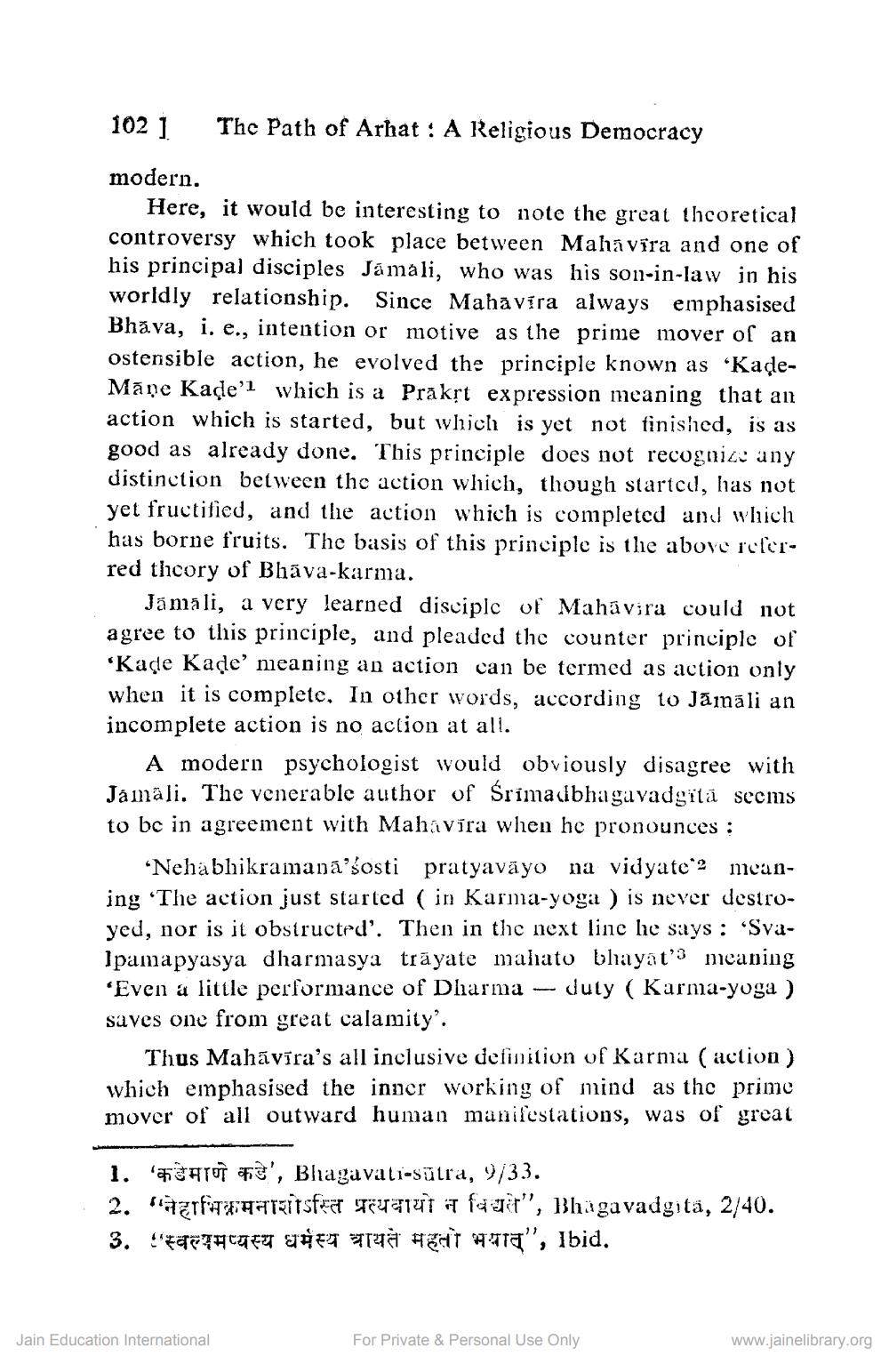________________
102 ]
The Path of Arhat : A Religious Democracy
modern.
Here, it would be interesting to note the great theoretical controversy which took place between Mahavira and one of his principal disciples Jāmali, who was his son-in-law in his worldly relationship. Since Mahavíra always emphasised Bhāva, i, e., intention or motive as the prime mover of an ostensible action, he evolved the principle known as 'KadeMāne Kade'l which is a Prakrt expression meaning that an action which is started, but which is yet not finished, is as good as already done. This principle does not recognize any distinction between the action which, though started, has not yet fructified, and the action which is completed and which has borne fruits. The basis of this principle is the above referred thcory of Bhāva-karma.
Jamali, a very learned disciplc of Mahavira could not agree to this principle, and pleaded the counter principle of 'Kade Kade' meaning an action can be termed as action only when it is complete. In other words, according to Jāmāli an incomplete action is no action at all.
A modern psychologist would obviously disagree with Jamali. The venerablc author of Srimadbhagavadgitä seems to be in agreement with Mahavira when he pronounces :
"Nehabhikramana’sosti pratyavāyo na vidyate*2 meaning 'The action just started ( in Karma-yoga ) is never destroyed, nor is it obstructed'. Then in the next linc he says : "SvaIpamapyasya dharmasya träyate mahato bhayat'3 meaning ‘Even a little performance of Dharma - July ( Karma-yoga ) saves one from great calamity.
Thus Mahavira's all inclusive definition of Karma ( action) which emphasised the inner working of mind as the prime mover of all outward human manifestations, was of great
1. FC HTOT Fil', Bhagavati-Sülra, 9/33. 2. "aafwatzitsfeat Tuautot fa uit”, Bhagavadgita, 2/40. 3. "*TETET 884 774 # 497a"', Ibid.
For Private & Personal Use Only
Jain Education International
www.jainelibrary.org




